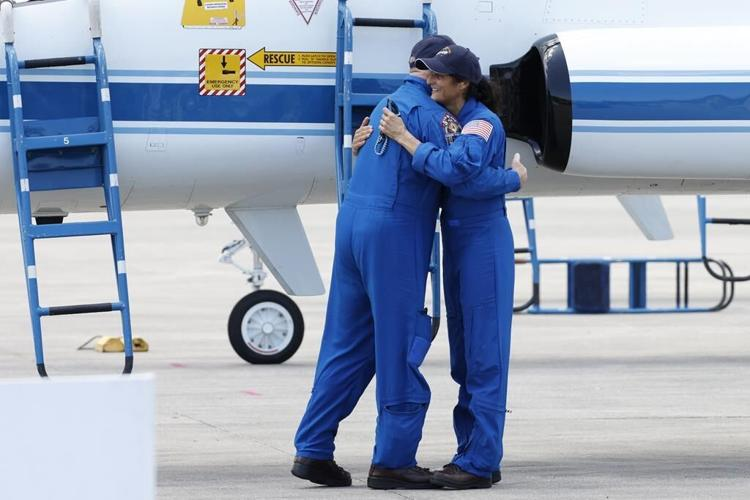
Source : The Canadian Press
In Cape Canaveral, Florida, the two NASA astronauts selected for Boeing's inaugural human spaceflight arrived at their launch site ahead of schedule. Butch Wilmore and Suni Williams will pilot Boeing's Starliner capsule, marking its first crewed mission after years of delays. Departing from Houston, they reached Kennedy Space Center on Thursday.
Scheduled for liftoff on May 6 atop an Atlas rocket, the Starliner will embark on a weeklong journey to the International Space Station (ISS) for a shakedown cruise. Boeing aims to close the gap with SpaceX, NASA's primary provider of astronaut transportation since 2020.
Unlike Boeing's previous Starliner test flights, which were unmanned, this mission features human crew. The initial attempt in 2019 faced setbacks due to software issues, preventing it from reaching the ISS. Boeing conducted a repeat demonstration in 2022. Recent challenges included parachute malfunctions and the discovery of flammable tape, which required removal.
Butch Wilmore emphasized the experimental nature of this flight, acknowledging the potential for unforeseen issues. He stressed the importance of uncovering any anomalies to ensure safety.
NASA's partnership with SpaceX and Boeing, established a decade ago, aims to facilitate astronaut transportation to and from the ISS, with the agency investing billions for this purpose. Despite plans to retire the space station by 2030, NASA remains committed to maintaining multiple spacecraft options for astronaut transport.
Butch Wilmore and Suni Williams are set to become the first astronauts to launch atop an Atlas rocket since NASA's Project Mercury in the early 1960s. This marks a significant milestone in space exploration as Boeing's Starliner venture progresses toward crewed missions.















